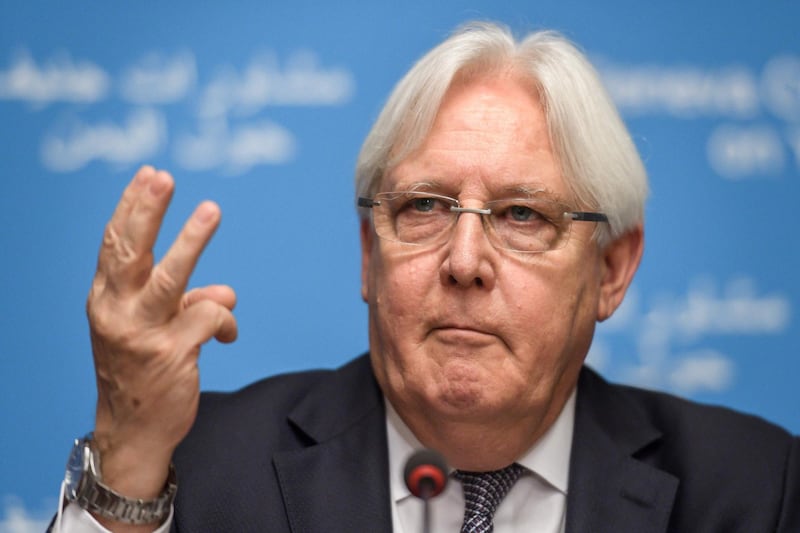Peace talks to end the conflict in Yemen collapsed in Switzerland in 2015 and in Kuwait a year later. Fruitless, too, have been all diplomatic efforts since. However, a fresh round of peace talks, which get underway in Geneva tomorrow, still present the best opportunity to negotiate a settlement.
The mediation of UN special envoy for Yemen, Martin Griffiths – who took up his post in February and has approached the conflict with diligence – is another source of optimism. As UAE Minister of State for Foreign Affairs Dr Anwar Gargash remarked on Tuesday, "Yemen's suffering following the Houthi coup can only end through a UN-led political process." Taking to Twitter, Dr Gargash concluded: "We urge all Yemeni parties to engage constructively with the UN process."
Given the intransigence of the Houthi rebels, who overthrew the internationally recognised government of Abdrabu Mansur Hadi and have previously refused to engage in peace talks, an end to the conflict will not come soon. But significant progress can nevertheless be made on fostering trust and dialogue between the parties. The great hope, perhaps, is the groundwork is prepared for fruitful peace talks at a later date.
It might not be headline grabbing, but that is a worthy aim. Overall, more than 10,000 have been killed and millions displaced since the conflict began, with the Houthis continually violating UN Security Council resolution 2216, which demanded all parties “immediately and unconditionally end violence”.
Earlier this week, the rebels fired a ballistic missile towards Saudi Arabian soil – adding to the dozens that came before. Meanwhile, on the same day, the Saudi-led coalition fighting to restore Mr Hadi’s rightful government killed 38 rebels in airstrikes. Peace might look doubtful against such a backdrop, but it is more essential than ever.
In the two years since talks last collapsed, the situation in Yemen has worsened considerably on both the humanitarian and economic front. Topping the agenda in Geneva will be the release of thousands of prisoners and the vital Hodeidah port, over which the Houthis have had a stranglehold since 2014. Some 70 per cent of Yemen's imports traverse the port.
It has been reported that the Houthi delegation could arrive late for talks – a stalling tactic employed previously by the Houthis and the Syrian regime in earlier rounds in Geneva – or even, perhaps, not at all. Talks must be targeted and build confidence on the ground.
The challenge facing Mr Griffiths might be colossal, but this is his moment to make real inroads. All sides must approach the talks with genuine commitment and solemnity. After years of bloodshed, Yemen's exhausted population deserves nothing less.





